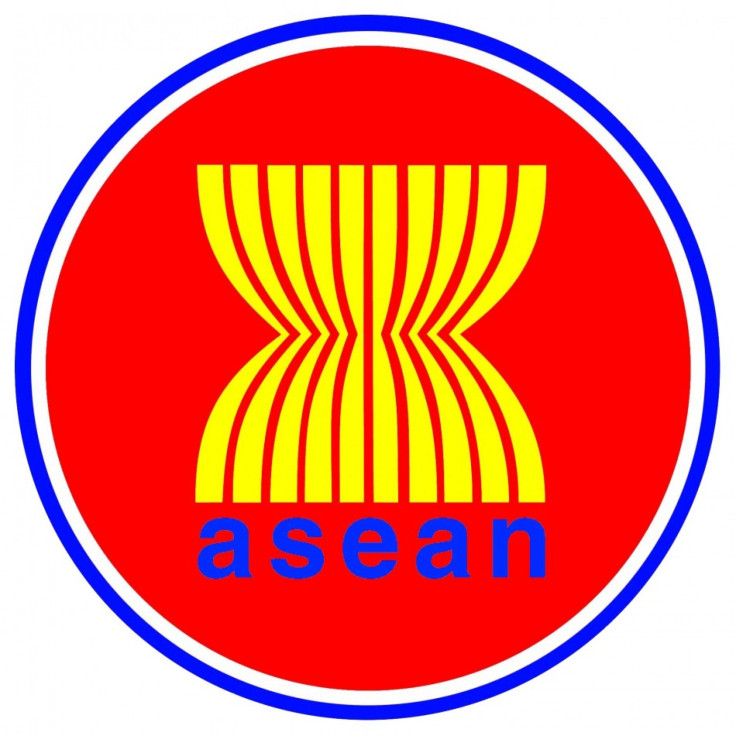ASEAN Hammers Out Code Of Conduct In South China Sea, Seeks China's Nod

Seeking to resolve the territorial tensions in the South China Sea, the Association of South East Asian Nations (ASEAN) Monday hammered out the key elements of a code of conduct in the region which has been at the heart of recent maritime confrontations between China and the other nations in the Pacific.
ASEAN will now seek China's agreement on the newly adopted set of rules to ensure discipline in the resource-rich region of the South China Sea.
Foreign ministers from the 10 member nations are meeting in Cambodia before the arrival of the delegates from China, a member of the ASEAN Plus Three (APT) forum.
ASEAN foreign ministers will meet their Chinese counterpart Yang Jiechi Wednesday when they are likely to present their South China Sea proposal, according to a Jakarta Globe report.
U.S. Secretary of State Hillary Clinton, who will lead a trade delegation, will meet the Chinese delegation in Phnom Penh for the 19th ASEAN Regional Forum (ARF) meet later this week.
China's Foreign Ministry said Monday that his country was willing to discuss the code of conduct. When conditions are ripe, China would like to discuss with ASEAN countries the formulation of the COC (code of conduct), spokesman Liu Weimin said, as reported by the BBC.
The Philippines, which was involved in a tug-of-war with China recently over the ownership of the Scarborough Shoal, has been seeking ASEAN's support in pressurizing Beijing to accept the code of conduct.
China's growing maritime influence in the region has neighboring nations, including Brunei, Malaysia, Vietnam and Taiwan, worried over the territorial confrontations. Beijing lays claim to almost the entire South China Sea, including what is recognized by the U.N. as the Exclusive Economic Zone of other neighbors, according to reports.
Meanwhile, the five recognized nuclear-weapons states under the Nuclear Non-Proliferation Treaty (NPT) - the U.S., Russia, China, France and the UK -- declared that they would not sign the protocol of the Southeast Asian Nuclear Weapons Free Zone treaty (SEANWFZ) during the meet, as many of them still have reservations, a statement from Cambodia's foreign ministry said Monday.
The SEANWFZ Commission decided to postpone the signings until the member states in ASEAN countries are able to work closely with the members of the P5 to resolve the issues of the reservations by members of the P5, Kao Kim Hourn, secretary of state at Cambodia's foreign ministry, said after the 45th ASEAN Foreign Ministers Meeting (AMM) Monday, as reported by Xinhua news agency.
France and the UK voiced their reservations on the definition of the nuclear-free zone while Russia postponed the signing due to concerns over the right of foreign ships and aircraft to pass into the zone.
China declined to sign the treaty saying the defined zone might affect its sovereignty over the territory, exclusive economic zone and continental shelves. The U.S., reportedly, would not introduce the text of reservations before the signings. The text of reservations is likely to be introduced during the rectification process.
Singapore, India's closest partner in Southeast Asia, will push for a bigger role for India in ASEAN and the East Asia Summit.
As the ASEAN nations look to counter balance China's rising influence in the region, there are increased calls for India's more active participation in shaping the region's geopolitical policies.
India, reportedly, is keen on hosting a series of events to mark the 20th anniversary of India-ASEAN ties later this year. India and Singapore will also sign a Memorandum of Understanding to jointly set up skill-based vocational training institutes.
© Copyright IBTimes 2024. All rights reserved.






















